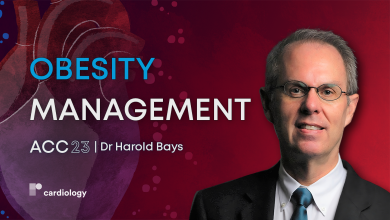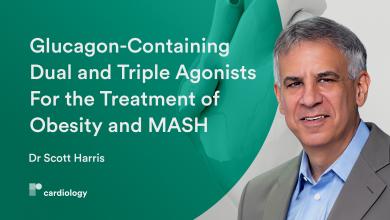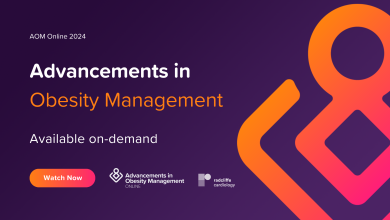In This Section:
Obesity
The high prevalence and increasing incidence of obesity and associated cardiovascular risk emphasises the need to focus on obesity reduction in this high-risk population.
Metabolic syndrome (MetS) is the coexistence of obesity-related cardiovascular risk factors including hypertension, diabetes and dyslipidaemia. MetS is a precursor for atherosclerosis, including premature coronary artery disease, and cardiovascular mortality.
Video
A Michael Lincoff , Harriette Van Spall,
Video
Video Series
Stefan Anker, Giuseppe Rosano, Javier de Juan Bagudá, et al
Video
Harriette Van Spall, Mikhail Kosiborod,
Video
Mirvat Alasnag, Khaled Al-Shaibi,
Video Series
Fausto J Pinto, Kerri L Cavanaugh, John Spertus, et al
Broadcast
e-SPACE CRM 2023 – Day TwoStefan Anker, Javed Butler, Antonio Ceriello, et al
Broadcast
e-SPACE CRM 2023 – Day OneStefan Anker, Javed Butler, Antonio Ceriello, et al
Recent Videos
Video
Video Series
Harold Bays, Naveed Sattar, Lydia Alexander, et al
Video
Radcliffe Content
European Cardiology Review 2024;19:e08.
European Cardiology Review 2024;19:e06.
Journal of Asian Pacific Society of Cardiology 2024;3:e21.























